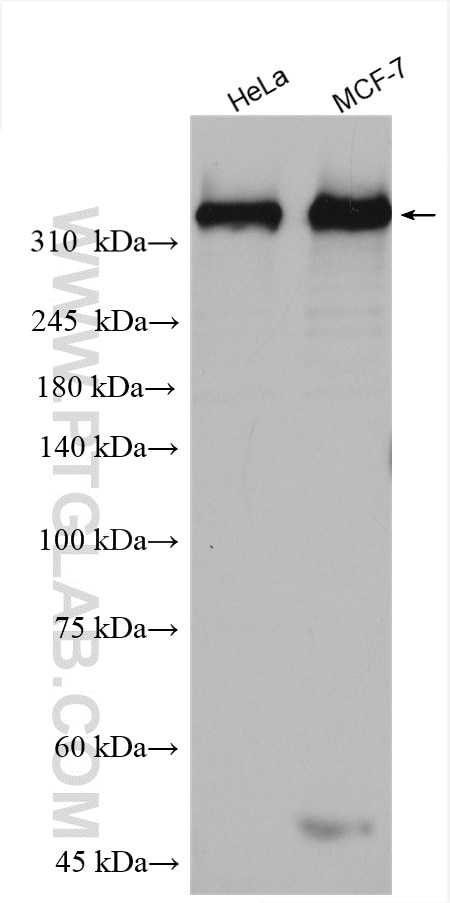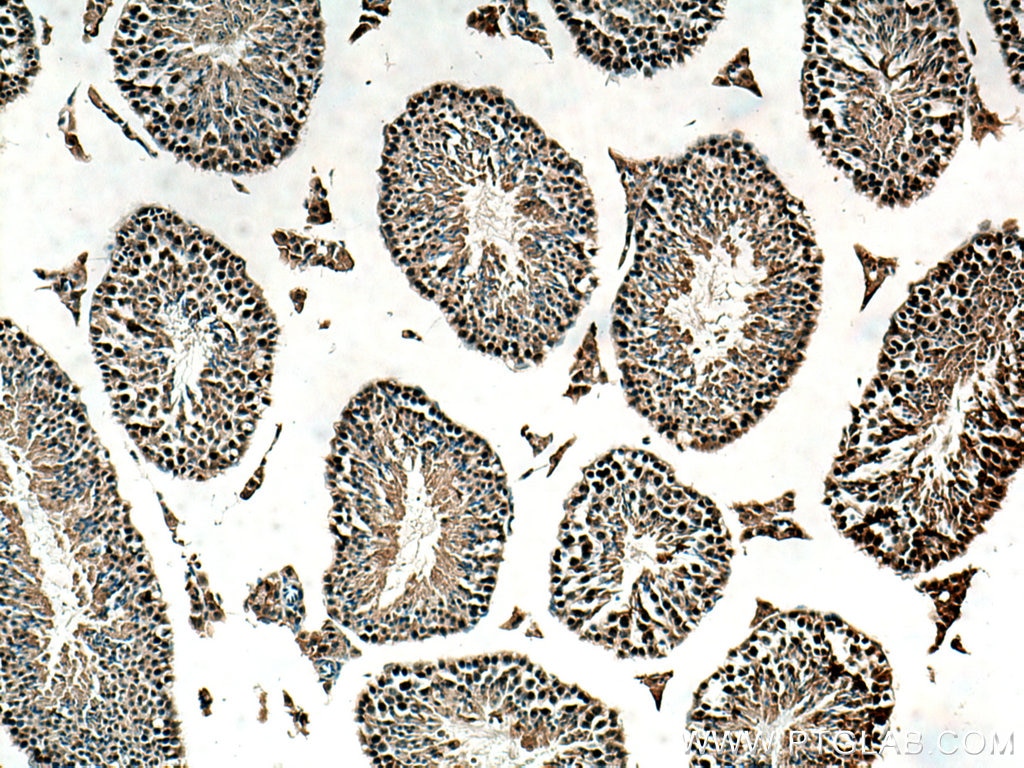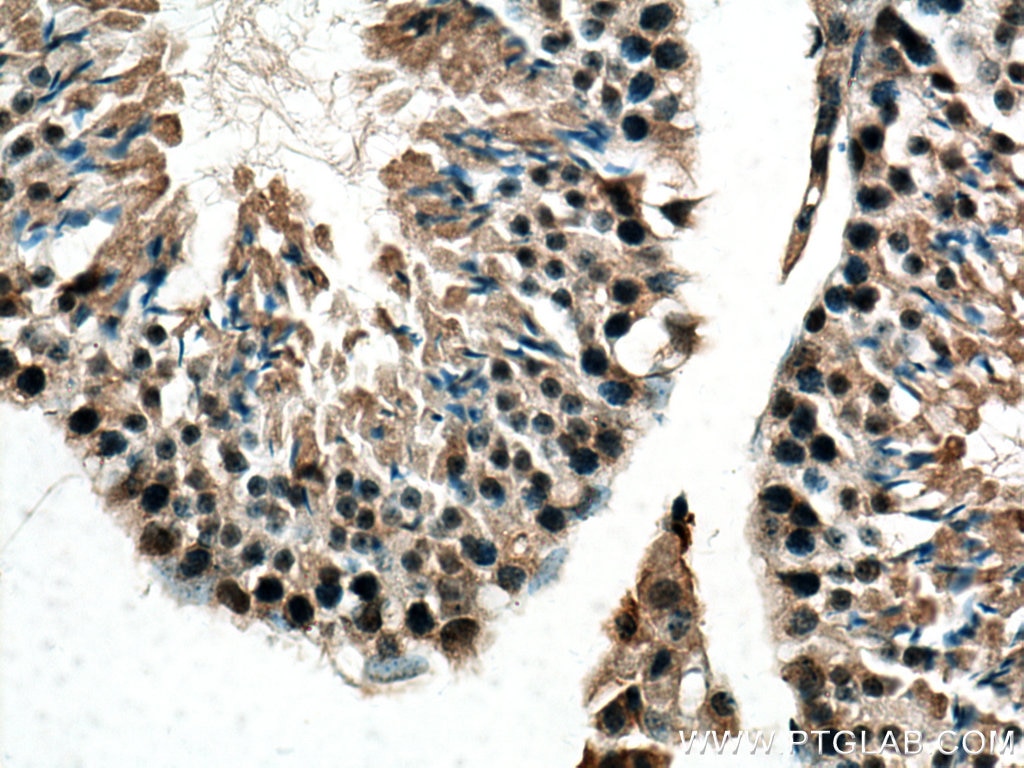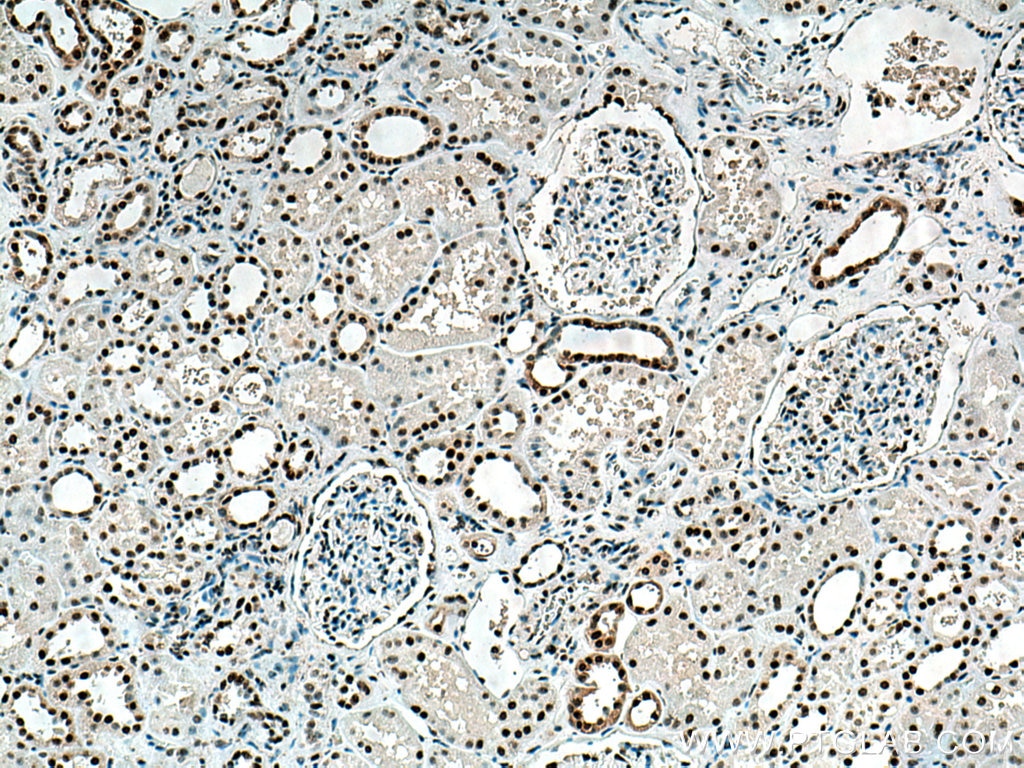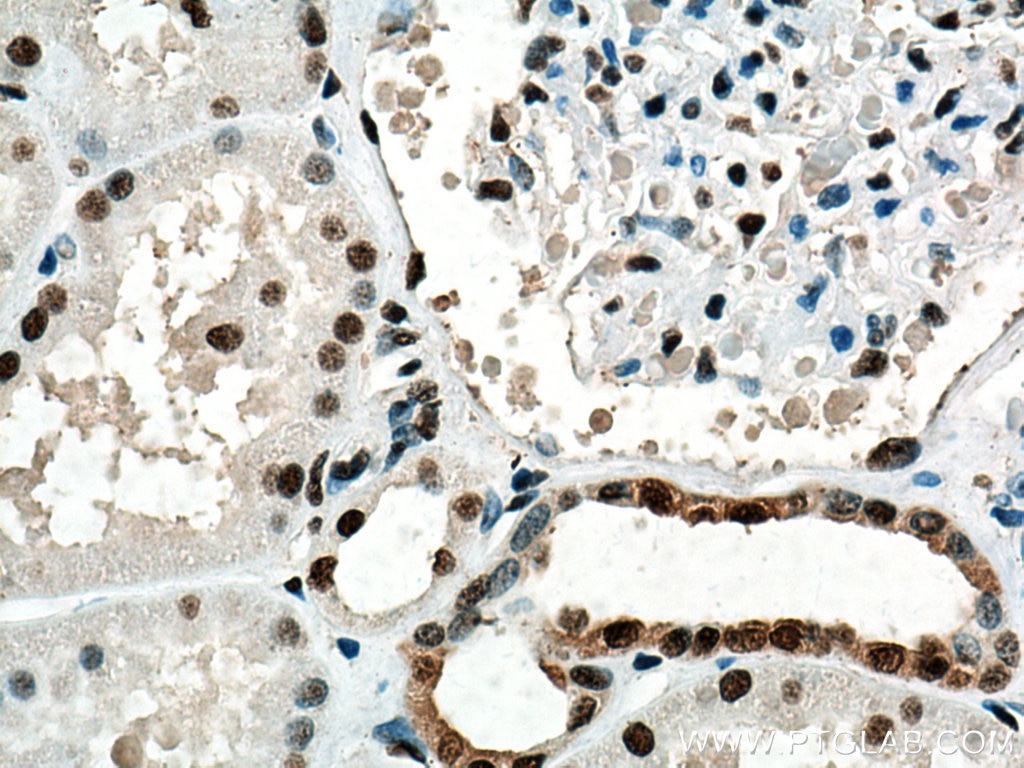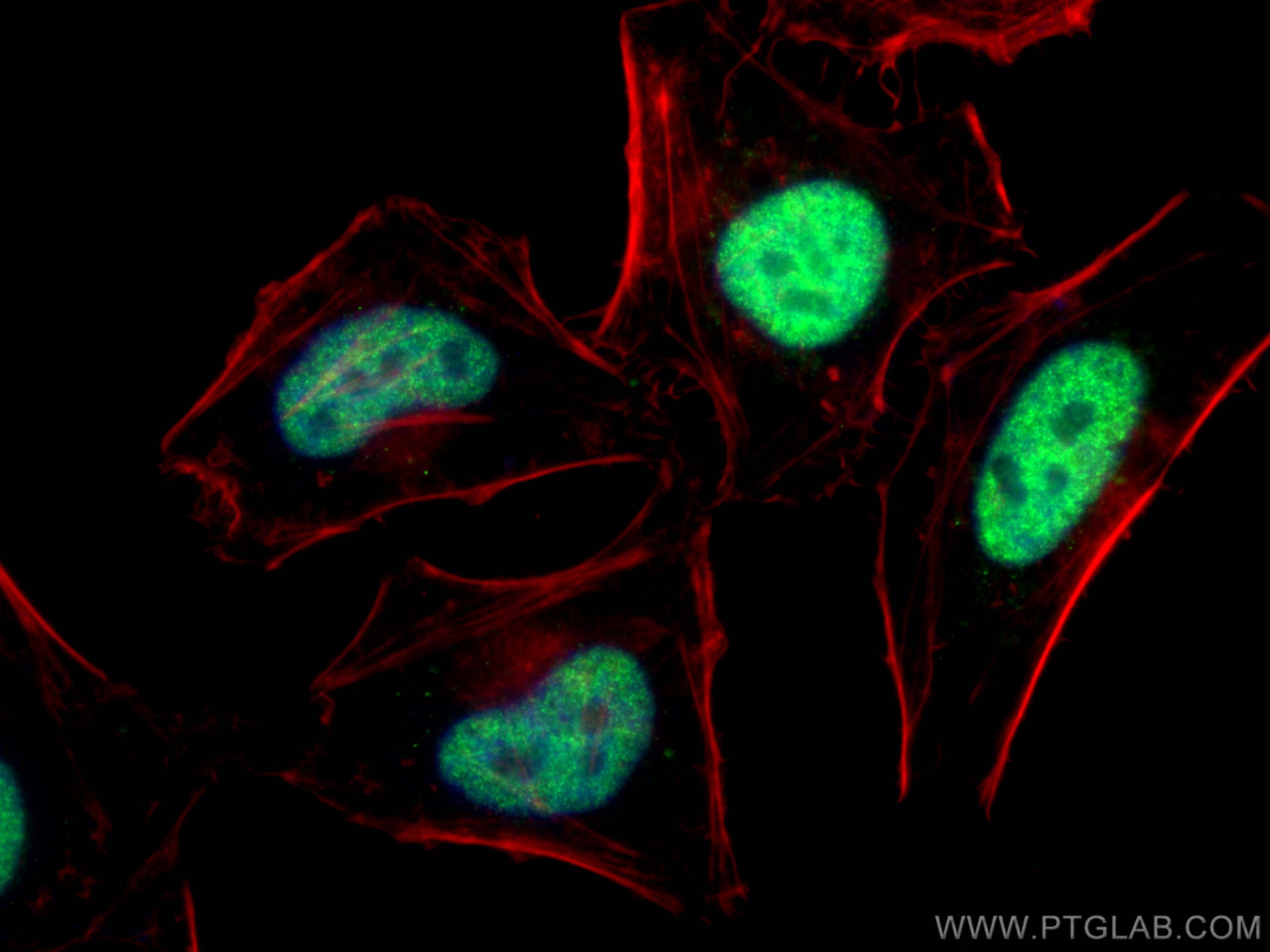Anticorps Polyclonal de lapin anti-DNA-PKcs
DNA-PKcs Polyclonal Antibody for IF, IHC, WB, ELISA
Hôte / Isotype
Lapin / IgG
Réactivité testée
Humain, souris
Applications
WB, IHC, IF, ELISA
Conjugaison
Non conjugué
N° de cat : 28534-1-AP
Synonymes
Galerie de données de validation
Applications testées
| Résultats positifs en WB | cellules HeLa, cellules MCF-7 |
| Résultats positifs en IHC | tissu testiculaire de souris, tissu rénal humain il est suggéré de démasquer l'antigène avec un tampon de TE buffer pH 9.0; (*) À défaut, 'le démasquage de l'antigène peut être 'effectué avec un tampon citrate pH 6,0. |
| Résultats positifs en IF | cellules HeLa, |
Dilution recommandée
| Application | Dilution |
|---|---|
| Western Blot (WB) | WB : 1:1000-1:4000 |
| Immunohistochimie (IHC) | IHC : 1:50-1:500 |
| Immunofluorescence (IF) | IF : 1:50-1:500 |
| It is recommended that this reagent should be titrated in each testing system to obtain optimal results. | |
| Sample-dependent, check data in validation data gallery | |
Applications publiées
| WB | See 1 publications below |
Informations sur le produit
28534-1-AP cible DNA-PKcs dans les applications de WB, IHC, IF, ELISA et montre une réactivité avec des échantillons Humain, souris
| Réactivité | Humain, souris |
| Réactivité citée | Humain |
| Hôte / Isotype | Lapin / IgG |
| Clonalité | Polyclonal |
| Type | Anticorps |
| Immunogène | DNA-PKcs Protéine recombinante Ag29100 |
| Nom complet | protein kinase, DNA-activated, catalytic polypeptide |
| Masse moléculaire calculée | 469 kDa |
| Poids moléculaire observé | 350-460 kDa |
| Numéro d’acquisition GenBank | NM_006904 |
| Symbole du gène | PRKDC |
| Identification du gène (NCBI) | 5591 |
| Conjugaison | Non conjugué |
| Forme | Liquide |
| Méthode de purification | Purification par affinité contre l'antigène |
| Tampon de stockage | PBS avec azoture de sodium à 0,02 % et glycérol à 50 % pH 7,3 |
| Conditions de stockage | Stocker à -20°C. Stable pendant un an après l'expédition. L'aliquotage n'est pas nécessaire pour le stockage à -20oC Les 20ul contiennent 0,1% de BSA. |
Informations générales
PRKDC, also named as HYRC, HYRC1, DNPK1 and p460, belongs to the PI3/PI4-kinase family. PRKDC is a serine/threonine-protein kinase that acts as a molecular sensor for DNA damage. Involved in DNA nonhomologous end joining (NHEJ), PRKDC is required for double-strand break (DSB) repair and V(D)J recombination. PRKDC must be bound to DNA to express its catalytic properties. It promotes processing of hairpin DNA structures in V(D)J recombination by activation of the hairpin endonuclease artemis (DCLRE1C). It is required to protect and align broken ends of DNA. PRKDC may also act as a scaffold protein to aid the localization of DNA repair proteins to the site of damage. It is found at the ends of chromosomes, suggesting a further role in the maintenance of telomeric stability and the prevention of chromosomal end fusion. It also involved in modulation of transcription. It recognizes the substrate consensus sequence [ST]-Q. PRKDC phosphorylates 'Ser-139' of histone variant H2AX/H2AFX, thereby regulating DNA damage response mechanism. It phosphorylates DCLRE1C, c-Abl/ABL1, histone H1, HSPCA, c-jun/JUN, p53/TP53, PARP1, POU2F1, DHX9, SRF, XRCC1, XRCC1, XRCC4, XRCC5, XRCC6, WRN, c-myc/MYC and RFA2. The antibody recognizes the C-term of PRKDC.
Protocole
| Product Specific Protocols | |
|---|---|
| WB protocol for DNA-PKcs antibody 28534-1-AP | Download protocol |
| IHC protocol for DNA-PKcs antibody 28534-1-AP | Download protocol |
| IF protocol for DNA-PKcs antibody 28534-1-AP | Download protocol |
| Standard Protocols | |
|---|---|
| Click here to view our Standard Protocols |
Publications
| Species | Application | Title |
|---|---|---|
Sci Adv SMYD2 inhibition-mediated hypomethylation of Ku70 contributes to impaired nonhomologous end joining repair and antitumor immunity |
